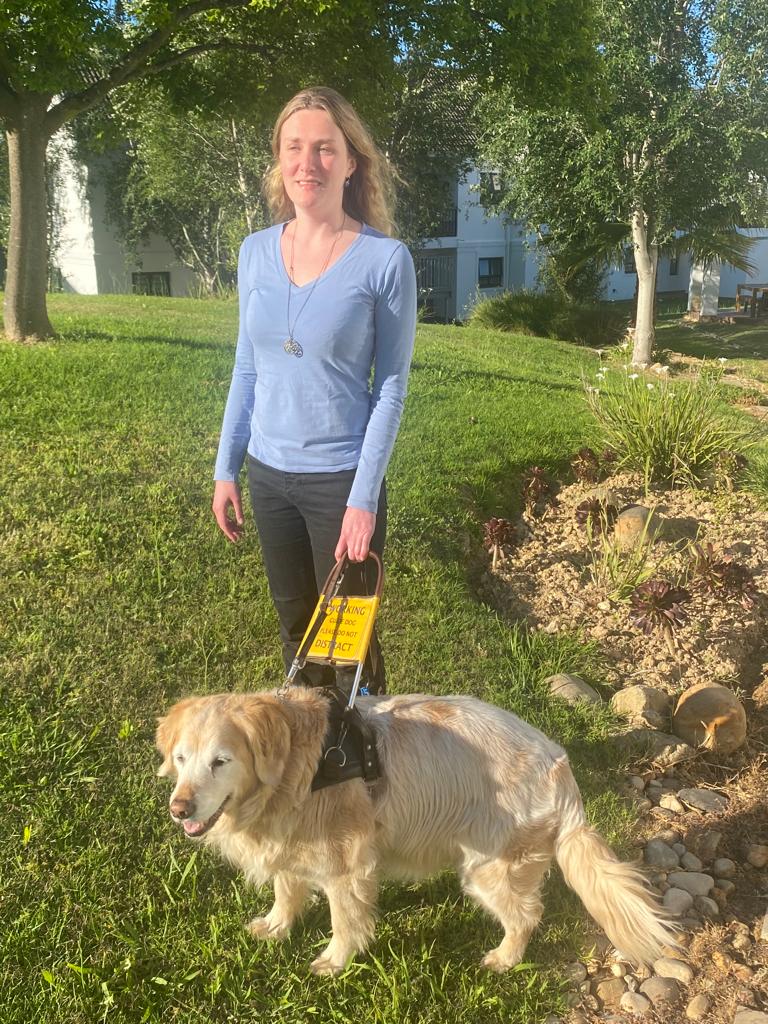Towards the end of 2020, I went onto the Facebook page of a South African news source and read a piece written by the South African President (Cyril Ramaphosa) for International Day for Persons with Disabilities. The letter made the point that the inclusion of people with disabilities is an important aspect in the recovery of the South African economy after Covid lockdowns. I was shocked and angered to read the number of comments below the letter along the lines of “but what about all the homeless and jobless” or “forget that; he should first sort out his cabinet”. And thus, a pet peeve was born!
Ever since that day, I have noticed over and over how discussion of disability leads to a phenomenon which some call “what-aboutism”. I define it as a logical fallacy whereby people try to shut down discussions of issues they don’t care to address by comparing them to other issues which they consider to be worse, and which they claim should be addressed first before moving on to the other issue. The sentences usually begin with “But what about…”.
My problem with this kind of argument (specifically in the case of disability) is manyfold. Firstly, it’s just faulty logic. Stating that Y is a problem when someone is discussing X doesn’t make X less of a problem. It’s just changing the topic. One could argue that it is valid to point out that one thing should be addressed before another because it is of greater importance, but when it comes to disability inclusion, this is not the case. I will address this later in this article.
Secondly, disability is interlinked with many of the societal problems that people consider to be more important. many of the homeless and jobless are people with disabilities. Disabled people often struggle for years to find jobs, even if they are highly educated. Employers avoid employing disabled job candidates for a variety of reasons. Some of these reasons involve employers assuming out of ignorance that the disabled candidate is incapable and would be a liability, or that the candidate might be a liability to the company in another way by costing the company money if environments or tools have to be made accessible. Think ramps and lifts for wheelchair users or screen reader compatible technology for blind computer users. Other reasons could include inflexibility on the part of the employer around allowing disabled people who have to work from home for various reasons to do so, such as blind people who can’t drive and have issues with access to transportation. Ironically, Covid has caused everyone to have to work from home, and suddenly employers see working from home as much less of a problem now that it benefits the whole world.
Some job advertisements even specify that the suitable candidate must have a drivers’ license, even if the job in question has absolutely nothing to do with the candidate’s ability to drive. Most employers don’t bother to even familiarise themselves with reasonable accommodation laws.
This is not even to mention the fact that disabled people are often employed in very low-paying, menial positions and there is a massive gap in terms of disabled representation in leadership and skilled positions.
I can speak as only one of the qualified disabled people who struggled to find a job. I was unemployed and struggling to make ends meet for three years after my studies, and the first job I stepped into after that was a very low-paying one which I had to leave anyway after a few months. It was in a different town to the one I live in, and the colleague with whom I used to get lifts moved away. Even so, I am one of the lucky few who are actually qualified. Many disabled people in South Africa live in poverty, and have never had access to education, let alone accessible education. In some cultures in South Africa, disability is stigmatised as a curse on the family of the disabled person, and the disabled children are hidden away and almost never allowed to leave the house.
In reality, people with disabilities have a lot to offer in the workplace. Aside from the fact that they might be highly qualified and skilled, diverse teams outperform homogenic teams 2:1. Although diversity is a matter of simple ethics, it also drastically affects a company’s bottom line, because a diverse workforce in which people from different demographics all feel a sense of belonging will produce the most innovative ideas. Research has also shown that people with disabilities have very strong innovative problem-solving skills, simply due to the fact that they have to solve problems and find different ways of doing things on a daily basis. However, that goes beyond the scope of this article, so let’s get back to what-aboutism. The question of diversity does link to my next point though.
Thirdly, disability is often considered less important even in the diversity and inclusion (DNI) space, which is ironically exclusionary in and of itself. I would be willing to bet that most people don’t go a month without hearing or reading something about race or gender diversity these days, but how often is disability thrown into the mix? In my experience (and I work in the DNI space) the answer is almost never, and if it is brought up, it’s in the broadest strokes. People just don’t know enough to talk about it and don’t bother doing research, and that includes DNI specialists. Why is this? Answer: largely because of what-aboutism.
I have experienced first-hand how conversations about disability have been squashed in organisations such as universities, even if these universities loudly shout about their commitment to transformation. If, for example, a disabled white straight cisgender man should raise an opinion in a sociology class, it wouldn’t take long for someone to tell him that he has no right to an opinion because he is privileged. Well, that may be the case. That man is very likely much more privileged than his black, queer, transgender, non-binary or female counterparts, but it doesn’t mean that he has no understanding of struggle, exclusion, and discrimination.
Most people know that racial disparities are still an enormous issue in South African society and in the world. Most people know that women still lag behind in terms of opportunities for advancement and in terms of being treated with dignity and respect in a world with traditionally masculine views. However, there is nothing that sets any of these group’s needs above those of another marginalised group, especially since disability intersects with so many of the other groups.
Disability issues are only now starting to be recognised at all. If I had been born just 20 years earlier, I wouldn’t have had my qualifications, and I probably still wouldn’t have a job. I’d be dependent on others, and I’d be one of the lucky few who actually have a support system. Disability is always the very last issue to be addressed in society, and that is why disability rights and the practice of inclusion towards people with disabilities still lags so very far behind rights and inclusion for other marginalised groups.
so exactly how long do we (15% of the world’s population and the biggest minority group globally) have to wait until our issues are considered to be serious? What is it that makes people think that all the rest of the world’s problems should be solved first? If such a large proportion of the world’s population is disabled, or will become disabled at some point in their lives, isn’t addressing disability-related issues helping everyone? Surely there’s enough space on the stage for all marginalised groups (let’s hope the stage has a wheelchair ramp) and shouldn’t we, as marginalised groups, be supporting each other and standing together instead of squabbling to have our issues be at the forefront of discussions about inclusion?

